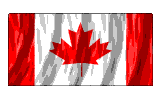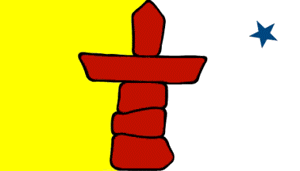


The Commonwealth of Canada

(Some definitions of 'commonwealth' or 'commonweal':- the common or public good: the government in a free state: the whole body of the People: a form of government in which the power rests with the People: a group of states united by a strong but elastic link.)
The Federal System in a reorganized Canada would represent people as individuals not as parties. Federal responsibilities would be established by a Confederation Convention of all the Provinces and Territories of Canada. Its funding would be decided on by the provinces, and it would account for spending at a biannual Convention. The federal branch of the Canadian People's self governing system would thus be more under the control of the whole people, not the reverse, as in the present system.
The Provinces, probably with some boundary adjustments, would become independent states in a Democratic Confederation, each free to develop in its own unique way within a strong, united Canadian Commonwealth, rather than as a group of bickering, powerless, provinces in a questionably unified country.
The Federal Citizen is the same person as the Provincial Citizen. That Citizen's opinions should not be restricted because of provincial boundaries. The main problem of population density and scatter, still not dealt with satisfactorily in our present federal system, will be difficult to solve. The need to share economic wealth and resources would be paramount in a real democratic Canada. Without this desire in the people, it will be difficult to hold a country this size together. in a non party, free voting House, Federal Representatives would need to justify why an extraordinay economic benefit should come to their area. One success would have to be taken into account when the next very desirable economic benefit came up. It is in everybody's interest to ensure that economic wealth is shared as equally as possible throughout Canada.
This federal governing body is a combined Parliament and Senate, elected directly by the People. There is no place in a modern democratic system for a non elected "Upper House". This is a relic from 18th Century politics in Britain. It is not much more than a vehicle for patronage and a pasture for aging politicians and party hacks. Each Province is represented in proportion to its voting population. One half of the body would resign every four years. Re-election is possible.
The Confederation Convention
The Convention should meet twice a year during the Spring and Summer recesses of the Provincial Assemblies. The Convention moves around Canada, choosing a different Province each time. It would be able to use the House of Representatives of the host Province, and its amenities for its work during that month. The Winter recess would be available for emergency Conventions.
The Convention Representatives elect an Executive Council (replacing the present Cabinet), and a Chairperson, called the Parliamentary Leader. The Council Members chair the Department Committees (presently called Ministries).
At the Spring Convention courses of action are put forward and discussed. Federal Bills are brought to the First Reading stage. Any matters affecting canada as a whole that come up from the Provincial Assemblies are discussed and sent to a Provinces with recommendations. There follow discussions with the People in their Communities between Spring and Summer Conventions. At the Summer Convention Bills go to Second Reading and enacted.
Federal Responsibilities
Apart from agreed responsibilities of an all-Canada nature, the Confederation Convention has three main International responsibilities.
1. Department of International Trade and Foreign Affairs
This Department ensures that people, of whatever country, are not exploited for the economic gain of the few. It includes:-
The Overseas Trade Commission
NAFTA Trade Commissio
These Departments work through a Canada House established in all countries with trading agreements, and States in the USA. It is designed as a Trade Centre to sell Canada's goods. It has a Political Department for dealing with foreign governments. It has Education, Information, and Tourism Departments. Each Province has its own Office and Trade Representative. Trade Houses are set up in Developing Countries to create duty-free trade with Canada. They are also centres for development assistance.
2. World Organisations and Assistance to Developing Countries
Assistance is always directed to the basic needs of people.
World Emergency Relief
Health
Education
Agriculture and Water
Low-Tech Industr
3. Department of Defence
The safety of people is the main priority of the Defence Department, whether in Canada or abroad. There are 6 main areas where a highly trained uniformed force is needed.
Coastguard
Coastal Fisheries and Environment
Air, Sea, Land Rescue
International Peace-keeping
Natural Disasters
Terroris
The Guardian of the People of Canada
The inclusion of the Monarchy in a truly democratic system of government is a paradox. However, anachronistic as it is, there is a need for what the Crown can contribute to life in a democracy, i.e. the legitimacy, the continuity, the impartiality, of the Crown. Even the pageantry associated with the Crown is a valuable asset. These factors may only have the appearance of reality, but the desire for them may induce a majority of the people to welcome the Crown in their system of government.
The concept of the Crown is democratized in the position of Guardian of the People of Canada. Whether or not there is a direct link to the British Monarchy, the Guardian System is an important aspect of Democracy Regained.
The People choose the Guardian by direct vote, not from a list of nominees, or even applicants, but from the total body of people of wisdom and stature in the country. The Crown confirms the People's Choice and he or she is appointed for a lengthy period, say 5 years. Provincial Guardians are chosen by the people of the several provinces and territories, and appointed by the Guardian of Canada. Provincial and Federal Ombudsmen and Ombudswomen are part of the office of their respective Guardians.
The Guardians' Court is all the Provincial Guardians presided over by the Guardian of Canada. This Court runs the Protocol Department ( a function of the Convention). It appoints the High Commissioner for International Trade, and through the International Branch of the Civil Service,appoints Trade Commissioners in the various Canada houses and Trade Houses in every country Canada trades with.
There are no Ambassadors or Embassy Buildings in any country. There is no reciprocal diplomatic immunity. These are out-of-date concepts. State visits are made by the Guardian of Canada and Provincial Guardians